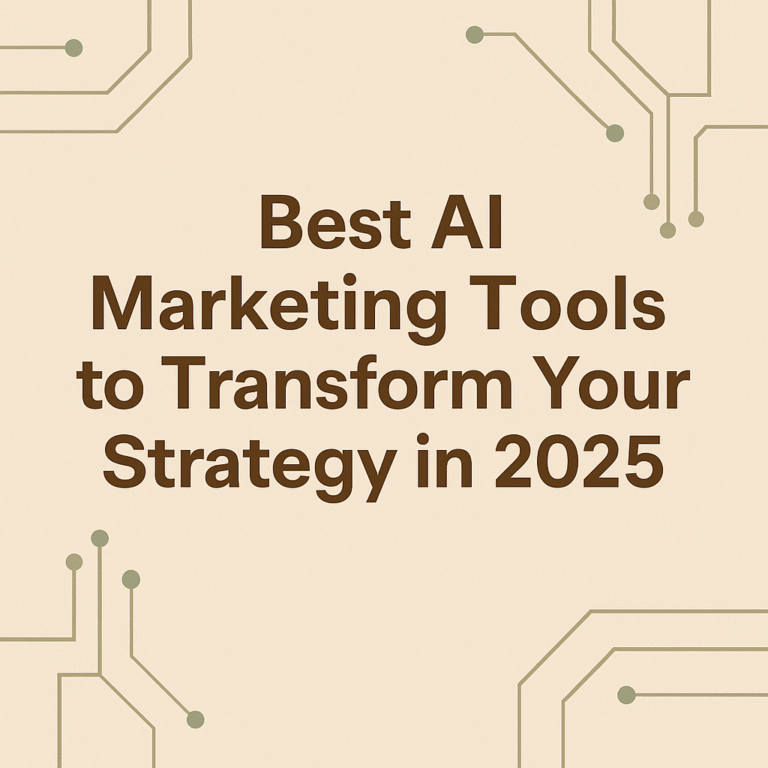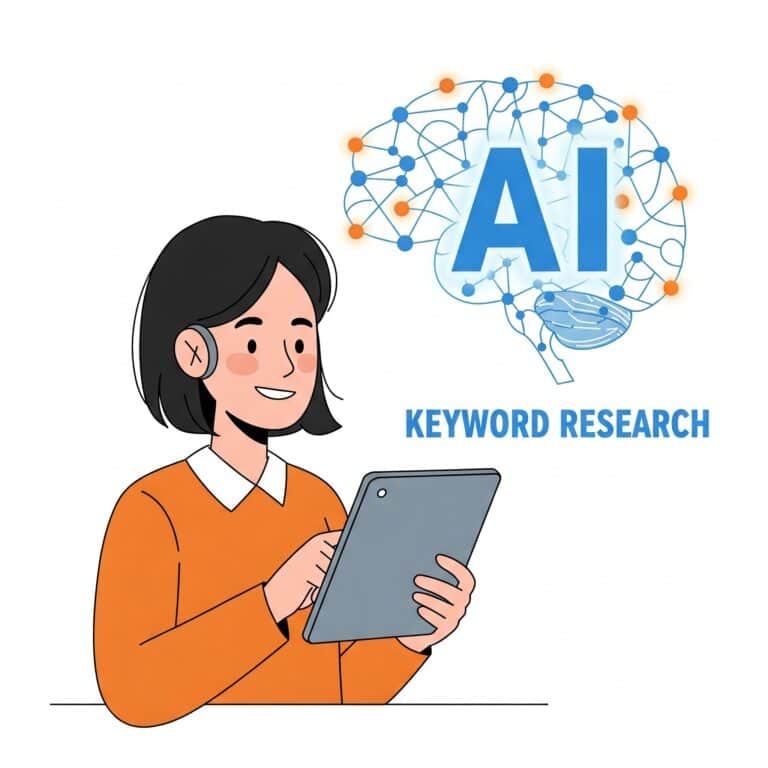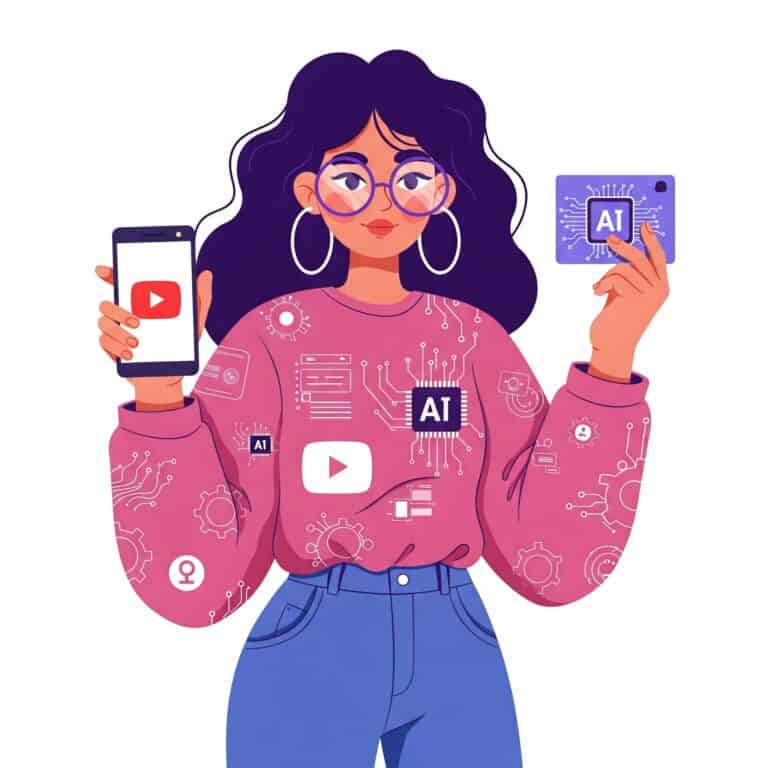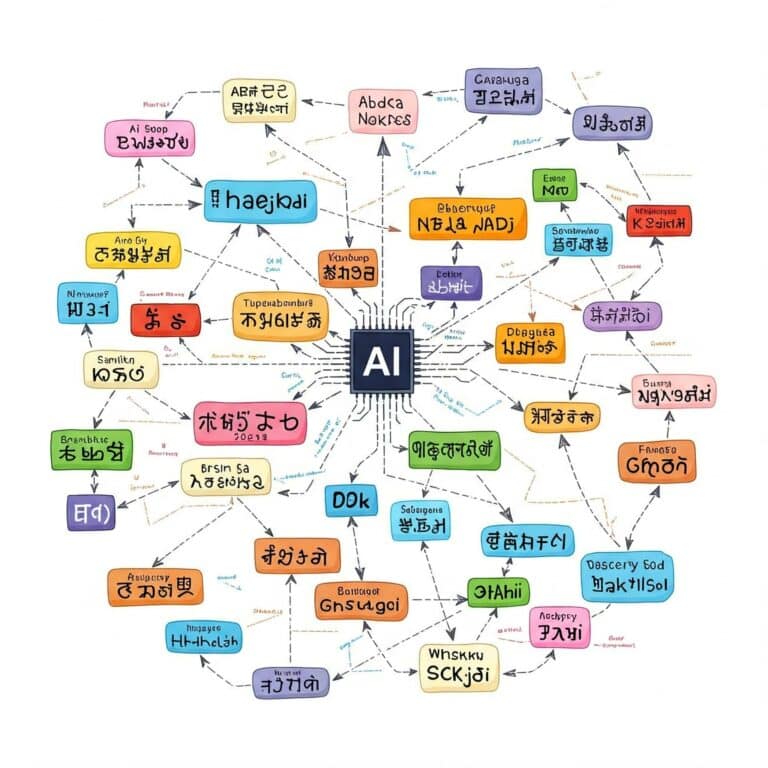AI SEO: Revolutionizing the Tools Digital Marketing
Introduction
Imagine trying to assemble a piece of IKEA furniture without the manual—you’re sweating, swearing, and missing crucial screws. That’s how traditional SEO can feel. Enter artificial intelligence (AI): your Allen key for Google rankings. AI SEO is not just a buzzword but a game-changing revolution in digital marketing. It blends advanced algorithms, machine learning, and real-time data analysis to help content creators, SEO professionals, and digital marketers achieve high-quality content optimization and improved search engine rankings. In this article, we’ll explore the ins and outs of AI SEO, from understanding its fundamentals to leveraging powerful ai tools that deliver valuable insights and competitive edge.
Understanding AI in SEO
What is AI and its Role in SEO?
Artificial intelligence in the realm of SEO refers to the use of machine learning, natural language processing, and advanced algorithms to analyze data, optimize content, and predict search engine algorithms. AI-powered tools are designed to handle heavy lifting tasks such as keyword research, content optimization, and competitor insights. By utilizing ai-generated content and generative ai techniques, these tools not only simplify seo workflows but also provide actionable insights that align with search intent and user behavior.
The Evolution of SEO Techniques
SEO has evolved drastically over the years. In the past, digital marketing relied heavily on manual keyword research and backlink building. Today, search engines demand high-quality content that meets user intent. Modern strategies now incorporate ai agents that deliver real-time data points and data analysis to guide content generation and optimization. This shift is driven by the increasing complexity of search engine algorithms and the rising need for content that provides real value to the target audience.
Why Traditional SEO Feels Like Assembling IKEA Furniture
The Challenges of Manual SEO
Manual SEO is akin to piecing together a complicated puzzle without clear instructions. It involves a tedious process of keyword research, competitor analysis, and content optimization. This often results in missed opportunities, inefficient internal linking, and an overall lack of direction when trying to meet search engine algorithms head-on. With traditional methods, marketers spend countless hours tweaking title tags, meta descriptions, and schema markup with no guarantee of better results.
Common Pitfalls in SEO Efforts
Many seo teams struggle with issues such as over-optimization and neglecting the human touch. Automated processes without actionable steps can lead to content that sounds robotic and fails to engage the target audience. Inconsistent tone of voice, lack of personalized insights, and misinterpreted data points can all detract from a website’s visibility. This is where ai-powered tools and strategies come into play, providing a balance between data-driven content creation and genuine brand voice.
How AI is Transforming SEO
Enhanced Keyword Research with AI Tools
Keyword research remains the backbone of effective SEO. AI tools analyze vast amounts of data to identify relevant keywords and long-tail phrases that resonate with both search engines and human readers. For instance, ai-driven platforms perform keyword clustering to group related terms such as “best running shoes” and “top Nike sneakers,” enabling content creators to target multiple search queries with a single, comprehensive article. This not only streamlines the keyword analysis process but also boosts organic traffic by aligning with real-time search intent.
Content Creation and Optimization
Content creation is an art, and ai content tools are the new brushes and palettes. AI writing tools like SurferSEO help in outlining posts by providing a table of contents that meets the best practices of content optimization. However, while these tools handle the grunt work of content generation, content writers must infuse the final draft with a human touch—adding personal anecdotes, relatable metaphors, and a tone of voice that resonates with their audience. This hybrid approach ensures that while the content is seo-optimized, it also remains engaging and authentic.
Data Analysis and Real-Time Insights
One of the greatest advantages of integrating AI in SEO is the ability to harness real-time data. By monitoring search behavior and user intent, digital marketing tools provide valuable insights that inform content strategies and optimization efforts. Whether it’s analyzing competitor insights or adjusting internal links based on user experience metrics, AI allows marketers to adapt quickly to changing trends. This real-time data analysis ensures that content remains relevant, keeping the website’s visibility high and organic traffic flowing.
3 AI Tools That Don’t Suck
Keyword Clustering with SEMrush AI
SEMrush’s ai tools revolutionize keyword research by grouping related search queries into clusters. For example, when targeting the phrase “best running shoes,” the tool can also group related terms like “top Nike sneakers,” allowing you to create a comprehensive article that addresses multiple queries simultaneously. This clustering not only simplifies keyword research but also improves search results by providing a broader coverage of relevant keywords and phrases.
Content Grading with Frase.io
Ever wish you had a strict teacher grading your draft? Frase.io steps in as that critical mentor. It scores your draft against high-quality content standards, providing actionable steps like “add more FAQs” or “fix readability.” This ai-powered content grading tool helps content creators refine their blog posts by ensuring they meet seo best practices. With clear, data-driven feedback, writers can easily adjust word count, improve title tags, and enhance meta descriptions for better search engine rankings.
Backlink Alerts with Ahrefs AI
Link building is another area where AI can save you time and effort. Ahrefs’ AI algorithms scan competitor sites and identify broken links, giving you the perfect opportunity to offer your own content as a replacement. This proactive approach to backlink management not only improves your website’s internal linking but also bolsters your organic traffic by enhancing your website’s credibility with search engines. With features like real-time alerts, this tool ensures you never miss a chance to leverage competitor insights for better results.
Balancing AI and the Human Touch in Content Creation
Maintaining Authenticity and Brand Voice
While ai tools handle data analysis and optimize content for search engines, they cannot replicate the human touch that defines your brand voice. Authenticity is key in digital marketing. Consumers crave genuine, relatable content that speaks directly to their experiences and needs. As a seo expert or content creator, you must blend AI-driven insights with your own personality, ensuring that each blog post reflects your unique tone of voice while still meeting technical seo requirements.
Integrating AI Data with Personal Experience
Imagine combining powerful tools with your own story—like mixing a secret ingredient into a favorite family recipe. While ai agents can provide valuable insights such as search intent and keyword analysis, your personal experience and creative flair add the finishing touches that make content engaging. This integration of ai content with human storytelling not only enhances user experience but also builds trust with your target audience, a key factor in achieving sustainable search engine rankings.
Can AI Write Your Blog Posts?
Leveraging AI for Drafting and Outlining
The short answer is yes, AI can write your blog posts—but don’t get lazy. Tools like SurferSEO provide you with detailed outlines and content plans based on advanced algorithms and real-time data analysis. They offer insights into relevant keywords, title tags, and even competitor insights, ensuring that your content is both seo-optimized and aligned with user intent. However, these tools are best used as starting points. Use them to generate a robust framework and then add your unique perspective to transform ai-generated content into something truly remarkable.
When to Add Your Own Spicy Takes
AI is excellent at crunching data and providing structured content, but it lacks the spontaneity of human creativity. Once you have your ai-driven draft, it’s time to add your spicy takes—the anecdotes, humor, and personal insights that resonate with your target audience. This is where the balance between ai-driven content creation and the human touch becomes crucial. Remember, search engines value E-E-A-T (Experience, Expertise, Authoritativeness, Trust), and while AI can simulate expertise, your authentic voice is what ultimately connects with readers.
Real-World Success Stories
Case Study: Skincare Brand and Viral AI Content
Consider the inspiring case of a skincare brand that leveraged ai tools to identify trending topics such as “chemical vs. physical sunscreen.” By using a combination of keyword research, competitor insights, and real-time data, the brand created a full article that addressed its audience’s specific needs. The result? Their ai-outlined post went viral, leading to a 120% increase in sales. This case study highlights the power of ai-driven content strategies when combined with high-quality content creation and strategic digital marketing.
Lessons Learned from AI-Driven Campaigns
Several real-world campaigns have demonstrated that AI’s influence in digital marketing isn’t just a fad—it’s a fundamental shift. Content marketers and seo professionals have reported that integrating ai tools into their seo workflows not only saves time but also enhances the overall quality of their blog posts and product pages. From optimizing title tags and meta descriptions to ensuring proper internal linking and schema markup, these campaigns have shown that a balanced approach combining advanced algorithms with human creativity can yield extraordinary results.
The Dark Side of Over-Optimization
Risks of Robotic, Over-Optimized Content
One of the greatest pitfalls of leaning too heavily on ai algorithms is the risk of creating content that feels robotic and over-optimized. While it might check all the technical boxes—relevant keywords, ideal word count, perfect title tags—such content often lacks the human touch that engages readers. Over-reliance on machine learning and data points can result in bland, formulaic blog posts that fail to capture the essence of your brand voice or address user intent in a relatable manner.
Finding the Perfect Balance
The key to success in ai SEO is balance. Leverage the power of ai-driven tools for data analysis, keyword research, and content optimization, but always infuse your articles with personal insights, actionable steps, and a tone of voice that resonates with your audience. Integrating valuable insights from ai content with your own experience ensures that your digital marketing efforts not only boost search rankings but also create a meaningful connection with readers.
Best Practices for Using AI in SEO
Understanding User Intent and Search Behavior
User intent is at the heart of effective seo strategies. To truly excel, it’s essential to delve into search behavior and identify what your target audience is looking for. Utilize tools such as the google search console and free seo tools to analyze user behavior, competitor insights, and search algorithms. By understanding search intent, you can tailor your content to meet specific requirements, ensuring that every blog post or product page provides real value and actionable insights.
Optimizing Content with Schema Markup and Internal Links
Effective content optimization goes beyond keyword density. Schema markup, internal linking, and comprehensive meta descriptions are crucial for boosting a website’s visibility on search engines. AI-powered tools can analyze data points to suggest improvements in your internal linking structure, ensuring that related content is easily discoverable. This seamless integration of ai-generated recommendations with your seo strategy not only improves search engine rankings but also enhances user experience by guiding readers through your online content.
Conclusion
The world of SEO is evolving, and artificial intelligence is at the forefront of this digital revolution. From transforming keyword research to streamlining content creation and delivering real-time insights, ai-driven tools are making it easier than ever to climb the search rankings. But remember—while AI can do the heavy lifting, the human touch is irreplaceable. Authentic storytelling, a relatable tone, and personal experience are what truly connect with your audience and build lasting trust.
By blending ai algorithms with proven seo best practices, you can overcome the challenges of traditional SEO—much like using an Allen key to assemble IKEA furniture with ease. Embrace the power of ai tools, integrate them with your unique voice, and watch your digital marketing efforts transform into high-quality content that resonates with both search engines and your target audience. The future of seo is here, and it’s powered by the dynamic synergy of artificial intelligence and human creativity.






